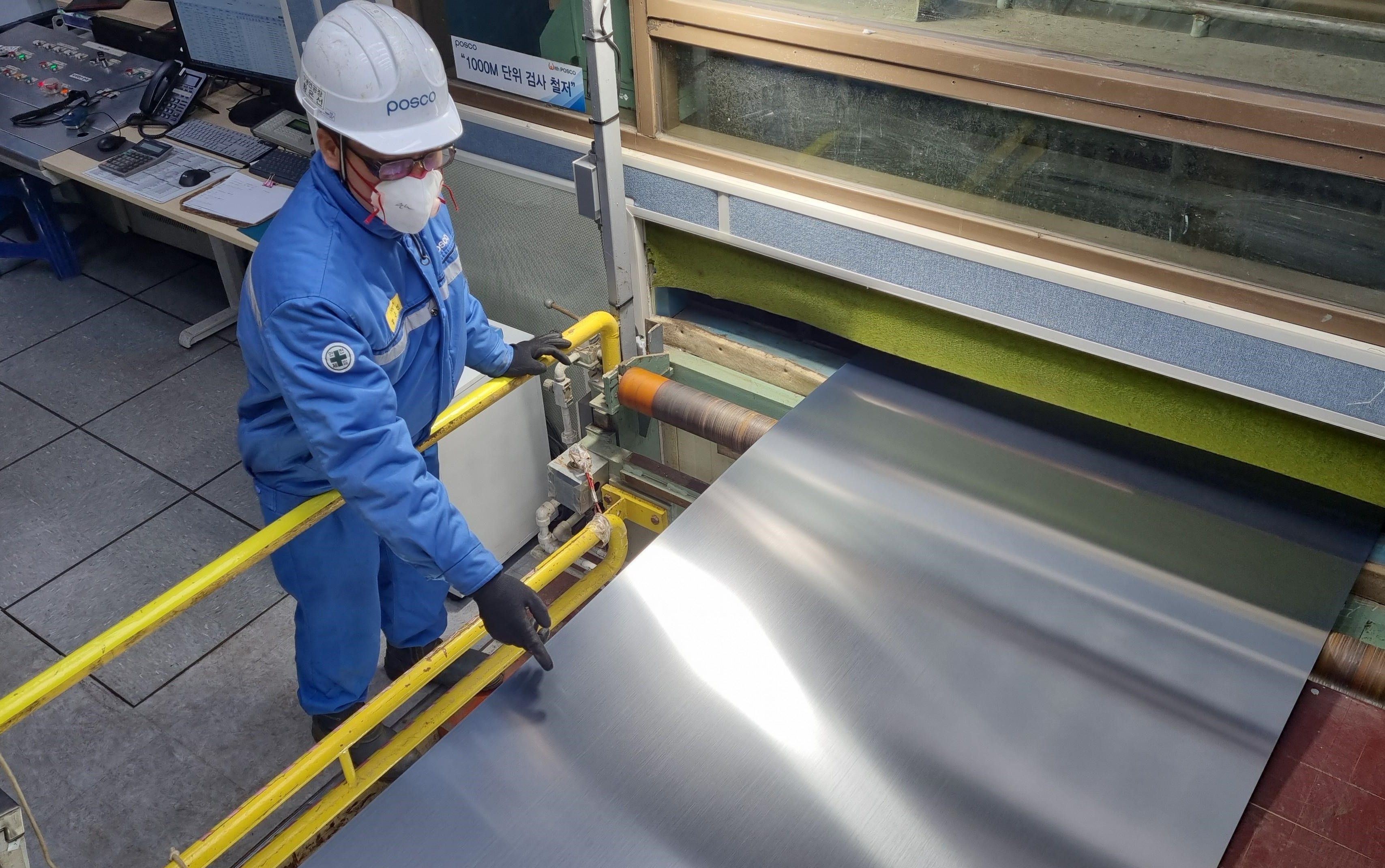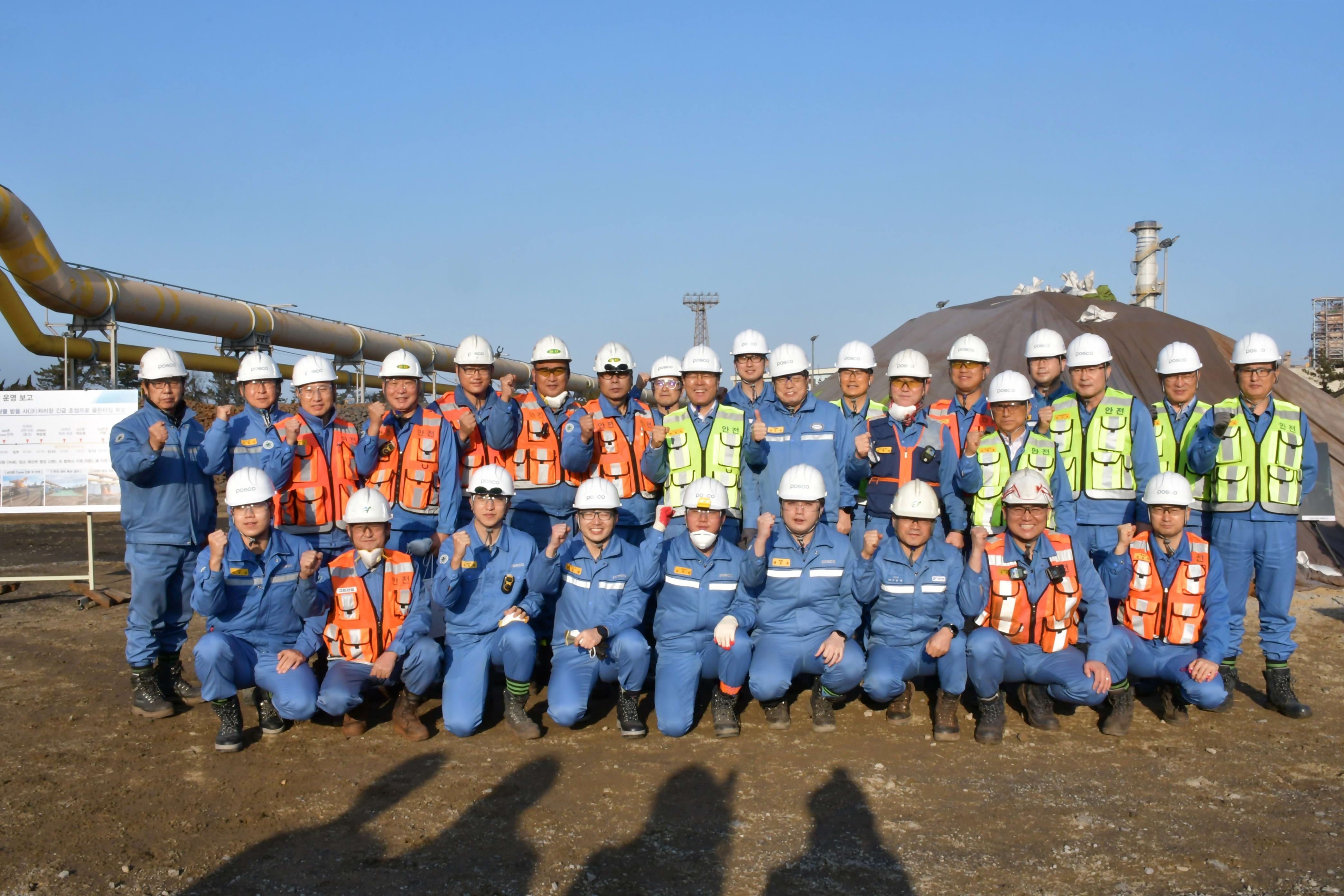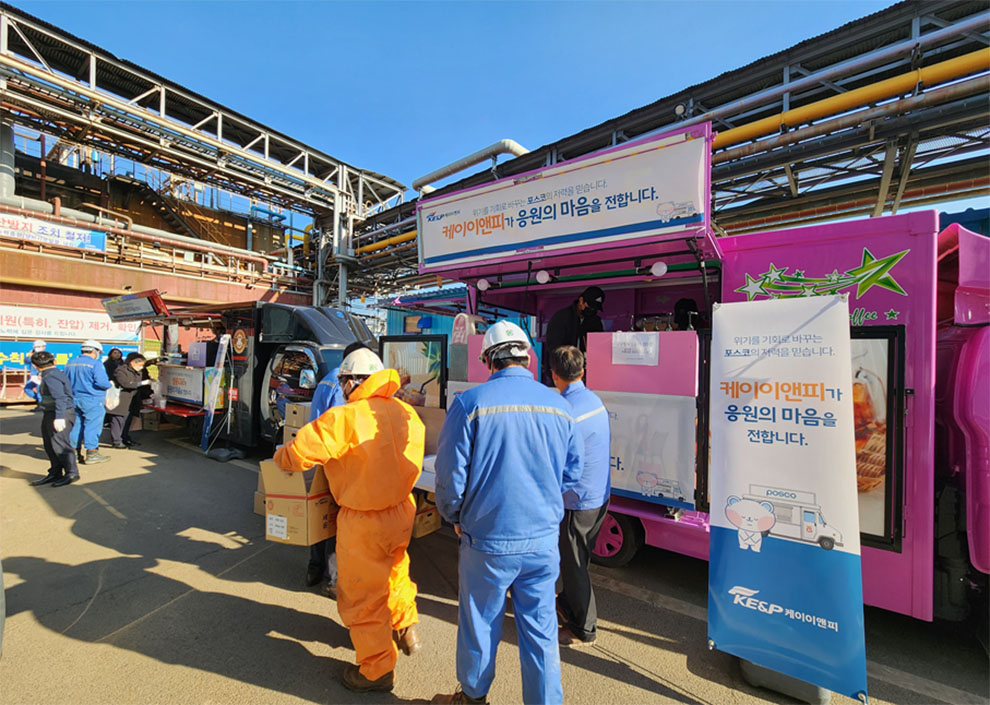With 50 years of accumulated world’s best operating know-how and the dedicated efforts of executives and employees completed a miraculous recovery journey in 135 days
All-out efforts to restore approximately 1.4 million people including executives and employees, private·public·military, and customer companies… Zero serious disasters during the recovery
Jeong-woo Choi, CEO of POSCO, chairman of World Steel Association led cooperation with global steel companies… “All the employees are heroes, and I thank the government, local governments, and people for supporting POSCO.”
Plans to supplement the disaster preparedness system by actively accepting the recommendation from the public-private joint steel supply and demand investigation team… pledge to leap forward as a sustainable 100-year company
POSCO has completed the restoration of all 17 rolling mills at Pohang Works and is scheduled to start normal operations from the 20th.
On September 6, POSCO faced an unprecedented situation in which the entire Pohang Works was submerged due to flooding caused by Typhoon Hinnamnor. However, it restored 15 plants at the end of last year and the company succeeded in restoring the plating CGL (Continuous Galvanizing Line) plant and the stainless steel 1st cold-rolling mill one after another on the 19th, creating a miracle of bringing the steelworks back to normal after 135 days of being submerged.
There were some concerns that the steelworks might have to be rebuilt in the beginning, but POSCO made a miracle that will remain in the history of the global steel industry thanks to the dedicated efforts of about 1.4 million employees and the world’s best operation and maintenance technology accumulated over 50 years by professional engineers, including master craftmen.
Not only the employees of Pohang Works, but also the employees of Gwangyang Works, Seoul POSCO Center, group companies, and partner companies all worked very hard day and night even on weekends to revive Pohang Works.
The maintenance work was carried out by master craftmen one by one for the equipment submerged in water and mud. In particular, domestic and foreign facility experts asserted that it was almost impossible to repair the main motors for the rolling mill up to 170 tons within a year, but the employees disassembled, cleaned, and assembled the main motors themselves, opening the way to normalization of operation.
Support from all walks of life, including the private·public·military, local governments, and customer companies, has also been of great help. The National Fire Agency and local governments provided large-capacity radiation systems, fire pumps, and sprinkler trucks and the Marine Corps and other military forces were put in to help with the restoration. Customer companies also provided restoring equipment, as well as snacks and supplies.
Nippon Steel and Hyundai Steel, which are competitors in the global market, also supported wire rod products and Torpedo Car in urgent situations.
In particular, the second hot rolling mill, the core of the steelworks, had to replace 11 out of 15 motor drives, a device that supplies electricity to the motors of rolling mills, making short-term supply difficult. Because of this, it could have taken more than a year to normalize.
In response, Jeong-woo Choi, CEO of POSCO Group, who is leading the World Steel Association, cooperated with Sajjan Jindal, CEO of JSW company of India, who is also a chairman of the World Steel Association, and was able to speed up the restoration schedule as India’s JSW company willingly gave the facilities that JSW was manufacturing for its own hot-rolling mill to POSCO.
Meanwhile, POSCO took the lead in protecting the ecosystem of the steel industry by actively preparing support measures for customer companies, suppliers, and partner companies even in the midst of restoration.
To ease supply and demand anxiety among customers, POSCO established a one-on-one customized response plan and implemented factory restoration in consideration of the supply and demand situation by finding creative and challenging solutions such as convertible production at Gwangyang Works, utilization of overseas business sites, and cooperation supply from other steel companies.
In addition, POSCO is providing liquidity support of 43.7 billion won to 25 flood-affected companies with funds from the “Steel ESG Win-Win Fund” and the “Win-Win Cooperation Special Fund,” and additionally provides 20.2 billion won in new facility purchase funds to 24 partner companies.
CEO Jeong-woo Choi visited the Pohang Works on the 10th when the restoration work was in the midst and said, “All the employees who achieved the early normalization of the Pohang Works without a single serious disaster are POSCO’s proud heroes,” and asked them to create a happy workplace based on safety in the future. He also said, “I deeply thank the government, local governments, and people for supporting POSCO,” adding, “I will move forward with my partners with a great responsibility for revitalizing the national economy.”
Henceforth, POSCO plans to supplement its disaster preparedness system according to the recommendations of the public-private joint steel supply and demand investigation team, focusing its capabilities on production stabilization and efficiency improvement for normal operating facilities.
Through the successful restoration of the Pohang Works, POSCO turned an unprecedented ordeal into a new hope. Just as the world said that building steelworks in Korea was absolutely impossible, but made a miracle to complete the construction of the Pohang works, POSCO created a second miracle by restoring the Pohang works.
POSCO plans to leap forward as a sustainable 100-year company based on the passion of all executives and employees and the DNA of overcoming crises.

▲ Products are being produced at the stainless steel 1st cold-rolling mill of Pohang Works, which completed restoration on January 19th.

▲ Jeong-woo Choi, CEO of POSCO Group (wearing a yellow safety vest in the middle of the back row) visits the steelmaking department of Pohang works on January 10th, encouraging the employees and taking a commemorative photo.

▲ POSCO’s raw material suppliers, including Korea Zinc, sent food trucks to the stainless steel 1st cold-rolling mill and plating plant of Pohang Works on January 11 to provide snacks and cheer for safe restoration.
